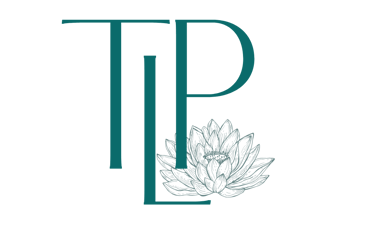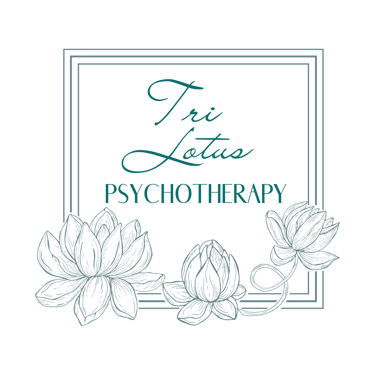NOW ACCEPTING NEW CLIENTS: In-Person in Calgary & Online across Alberta Book a Free 20min Introductory Call! CLIENT LOGIN
How to Cope with Anxiety
7 tips for how to cope with anxiety, written by a licensed Calgary therapist.
ANXIETY RELIEFCOPING SKILLS
Kaylee Procter
1/24/2024


Anxiety can be an overwhelming and debilitating condition that affects many people. If you're struggling with anxiety, it's important to know that there are effective strategies to help you cope. It's time to break free from the shackles of anxiety and learn how to deal with it. Keep reading for 5 tips:
1. Practice Mindfulness
Mindfulness is a key component of Acceptance and Commitment Therapy and can be incredibly helpful in managing anxiety. By being fully present in the moment and observing your thoughts and feelings without judgment, you can develop a greater awareness of your anxiety triggers. Take a few minutes each day to engage in mindfulness exercises such as deep breathing, body scans, or guided meditation. These practices can help you detach from anxious thoughts and cultivate a sense of calm. Anxious lives in the future, so the more time we spend being in the present moment, the less anxiety we will feel.
2. Identify Your Values
Clarifying your values is important, as we can use them as a guide for our actions. Take some time to reflect on what truly matters to you in life. Is it your relationships, career, personal growth, or something else? How do you want to show up in these areas of your life? These questions will point you towards your values. Once you have identified them, make a commitment to align your actions with them. Anxiety often leads to avoidance, so by focusing on your values, you can consciously choose to engage in activities that bring you closer to your goals and values, despite any anxiety that may arise. It also gives you something that you can control when anxiety makes us feel out of control.
3. Notice Unhelpful Thinking Patterns and Separate from them
Anxiety is often fuelled by unhelpful thoughts and thinking patterns. Start by paying attention to your internal dialogue. Separate yourself from these thoughts by taking the following steps:
Notice them
Name them as anxiety
Remind yourself that anxious thoughts are normal
Identify the purpose behind the anxious thought (i.e. it is my mind's way of trying to protect me)
Ask yourself, if you let the thoughts dictate what you do, will they move you closer to or away from the life you want.
This process takes practice, but over time, it can significantly reduce anxiety and improve your overall well-being.
4. Embrace Discomfort
Anxiety is our mind's way of protecting us. If we did not have anxiety there would be nothing stopping us from consistently putting ourselves in danger. It also often arises from a desire to avoid or escape uncomfortable feelings. However, by learning to tolerate and even embrace discomfort, you can reduce anxiety's power over you. Start by intentionally exposing yourself to situations that make you anxious and then using coping skills to deal with anxiety that follows, gradually increasing the level of discomfort. This process, known as exposure therapy, can help you build resilience and confidence in managing anxiety-provoking situations*.
*If you are new to exposure, I recommend only practicing it under the guidance of a licensed therapist.
5. Deep Breathing and Relaxation Techniques
Practice deep breathing exercises to help calm your nervous system. Focus on taking slow, deep breaths, inhaling through your nose and exhaling through your mouth. In particular, practice box breathing by inhaling to the count of 5, holding to the count of 5, exhaling to the count of 5, and holding to the count of 5 (complete this 4 times). Techniques such as diaphragmatic breathing, progressive muscle relaxation, or imaging a safe place imagery can also be beneficial. These practices can help reduce the physical symptoms of anxiety.
6. Regular Exercise
Physical activity has been shown to have positive effects on mental health, including anxiety reduction. Exercise releases endorphins, which are natural mood lifters. Aim for at least 30 minutes of moderate-intensity exercise most days of the week. This could include activities like walking, jogging, swimming, or yoga. If you are finding yourself having a day where you're mostly experiencing physical symptoms of anxiety, aim for low impact exercises such as, yoga and walking. While exercising, practice being in the present moment.
7. Seek Support
While self-help strategies can be effective, it's important to remember that seeking support from a licensed therapist can greatly enhance your progress. A therapist trained in Acceptance and Commitment Therapy can provide guidance, support, and personalized strategies to help you cope with anxiety. They can help you navigate the challenges that arise during your journey and provide a compassionate and inclusive space for you to explore and process your emotions. Remember, you don't have to face anxiety alone.
Anxiety can be overwhelming, but with the right tools and techniques, you can learn to manage it effectively. Acceptance and Commitment Therapy offers a holistic approach that focuses on accepting your thoughts and feelings while taking action aligned with your values. Remember, progress takes time and effort, so be patient and kind to yourself as you embark on this journey towards greater well-being.
It's important to note that everyone is unique, and what works for one person may not work for another. If anxiety is significantly impacting your daily life, consider seeking support from a mental health professional who can provide personalized guidance and interventions. Additionally, these tips are not a substitute for professional advice, and individuals with severe anxiety or related conditions should consult with a healthcare provider for a comprehensive assessment and appropriate treatment recommendations.
Tri Lotus Psychotherapy offers personalized support in the treatment of anxiety, as well as specific coping mechanisms for anxiety. Take advantage of the complimentary introductory call to discuss your counselling needs and see how a licensed Calgary therapist can help you find relief.
How Cope with Anxiety: 7 tips for anxiety relief
This blog post provides 7 tips for coping with anxiety, primarily utilizing an Acceptance and Commitment Therapy approach, written by a licensed Calgary Counsellor.
Let's Connect
Please fill out the form to request an initial appointment
or complimentary introductory call
Contact
hello@trilotustherapy.com
Clinic Hours
Monday: 5:00pm to 8:00pm
Tuesday: 1:00pm to 8:00pm
Wednesday: 8:00am to 8:00pm
Thursday: 8:00am to 8:00pm
Friday: 11:30am to 4:30pm
Saturday: 9:00am to 3:00pm
Copyright © 2025 by Tri Lotus Psychotherapy - All Rights Reserved


Land Acknowledgment: I gratefully acknowledge and honour that where I live, work and play is within the traditional territories of the people of the Treaty 7 region in Southern Alberta, which includes the Blackfoot Confederacy (comprising the Siksika, Piikani, and Kainai First Nations) as well as the Tsuut’ina First Nation, and the Stoney Nakoda (including the Chiniki, Bearspaw, and Wesley First Nations); and Métis Nation of Alberta, Region 3. The traditional Blackfoot name of this place is “Mohkinstsis”, which is also known now as Calgary.

